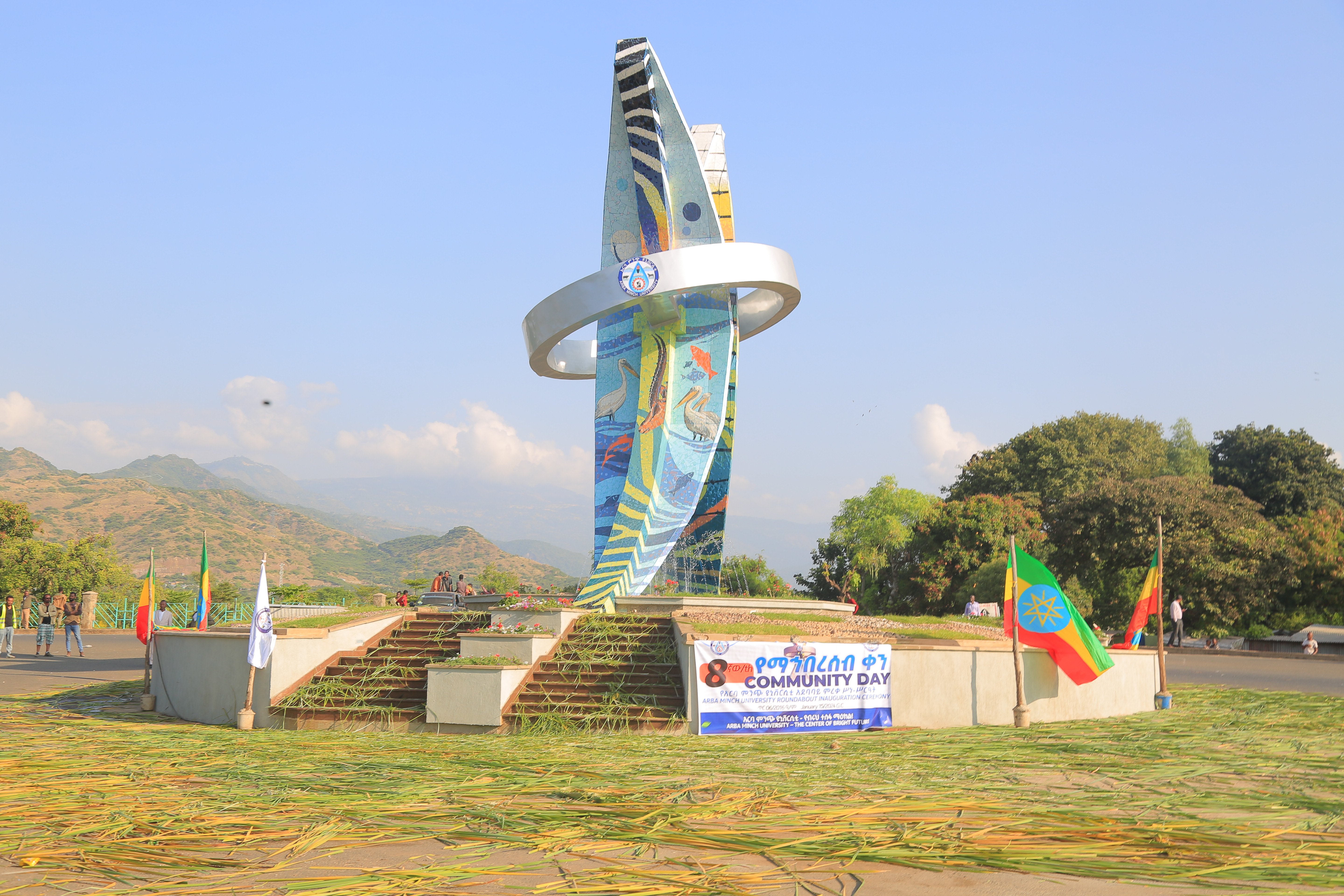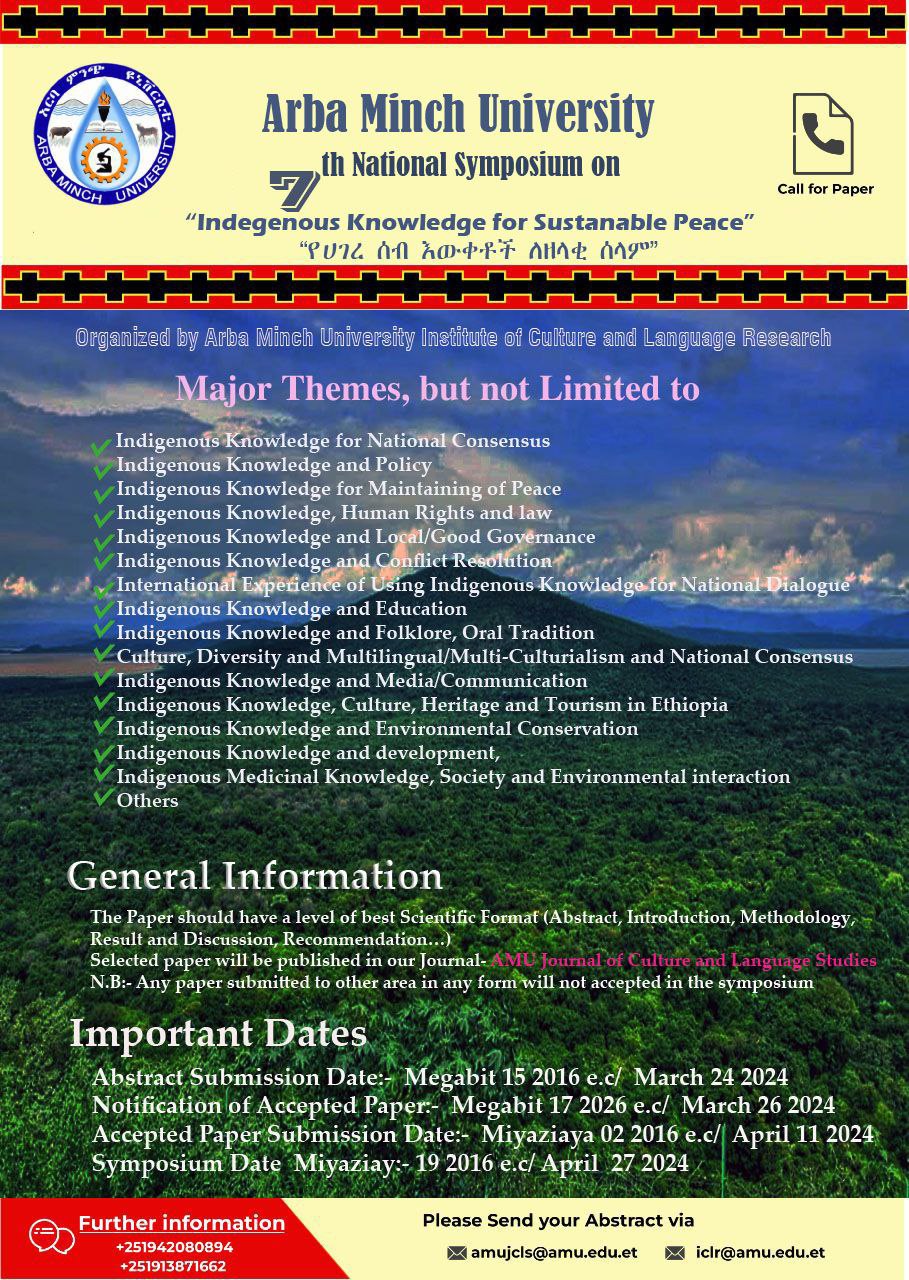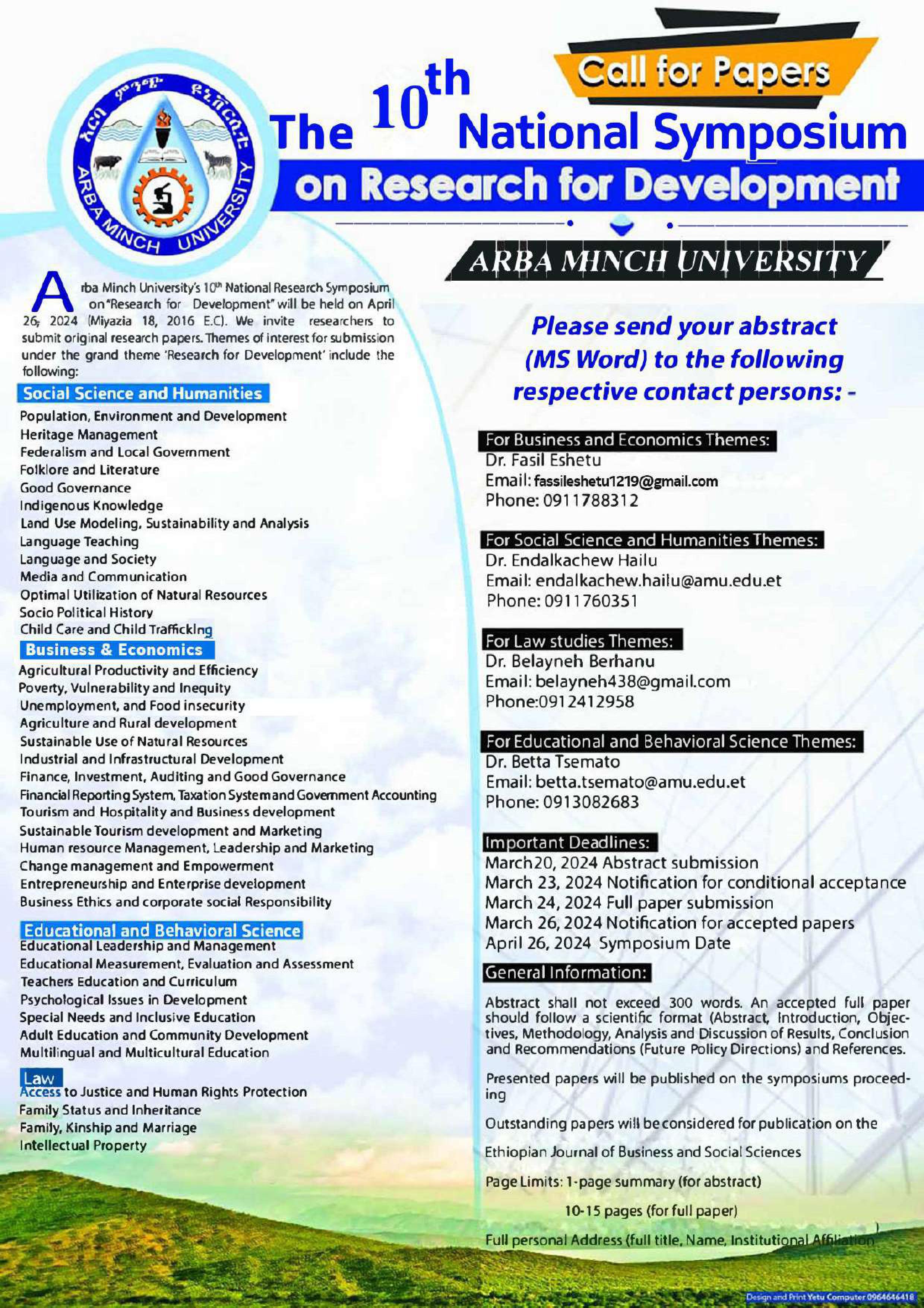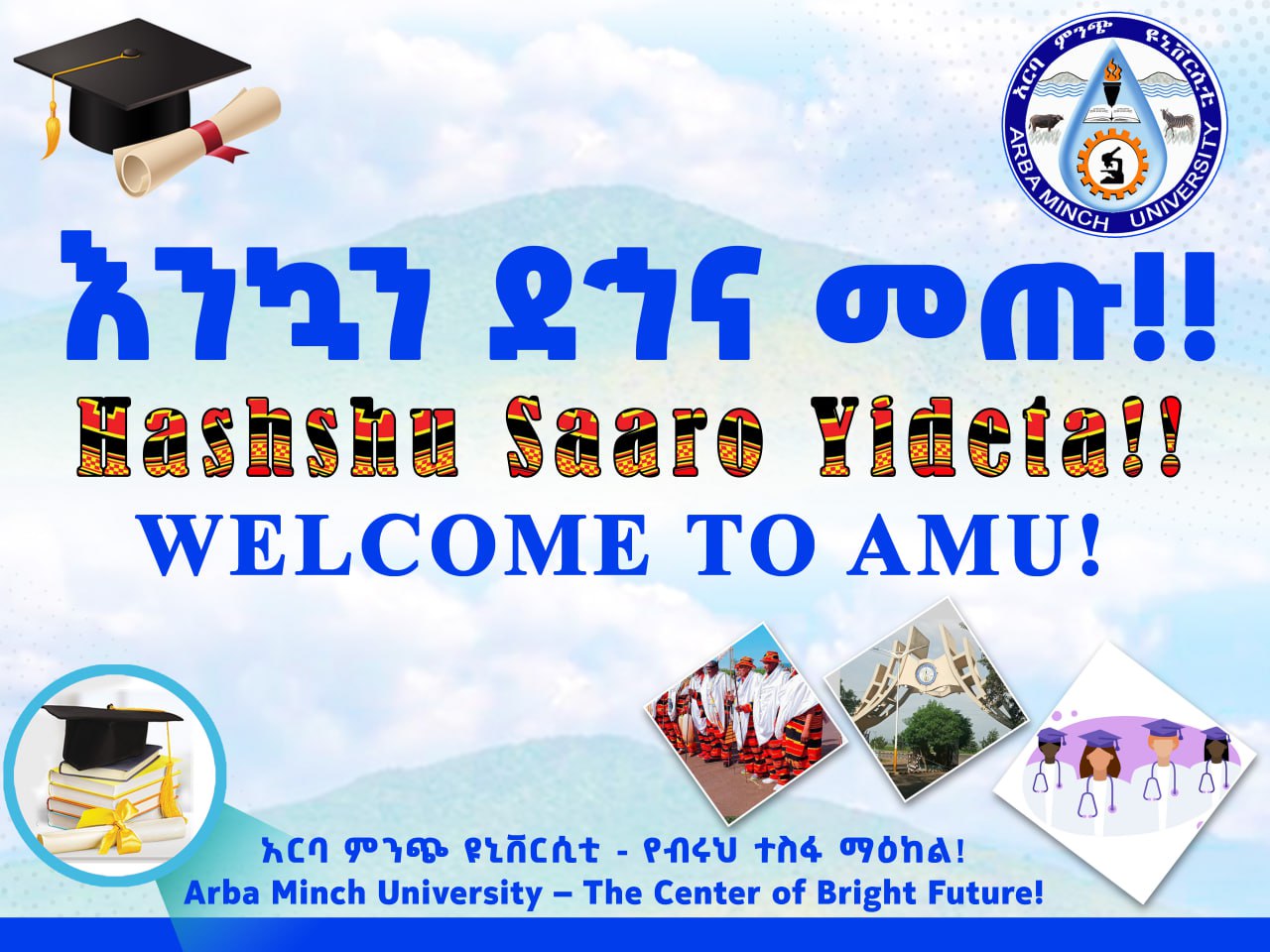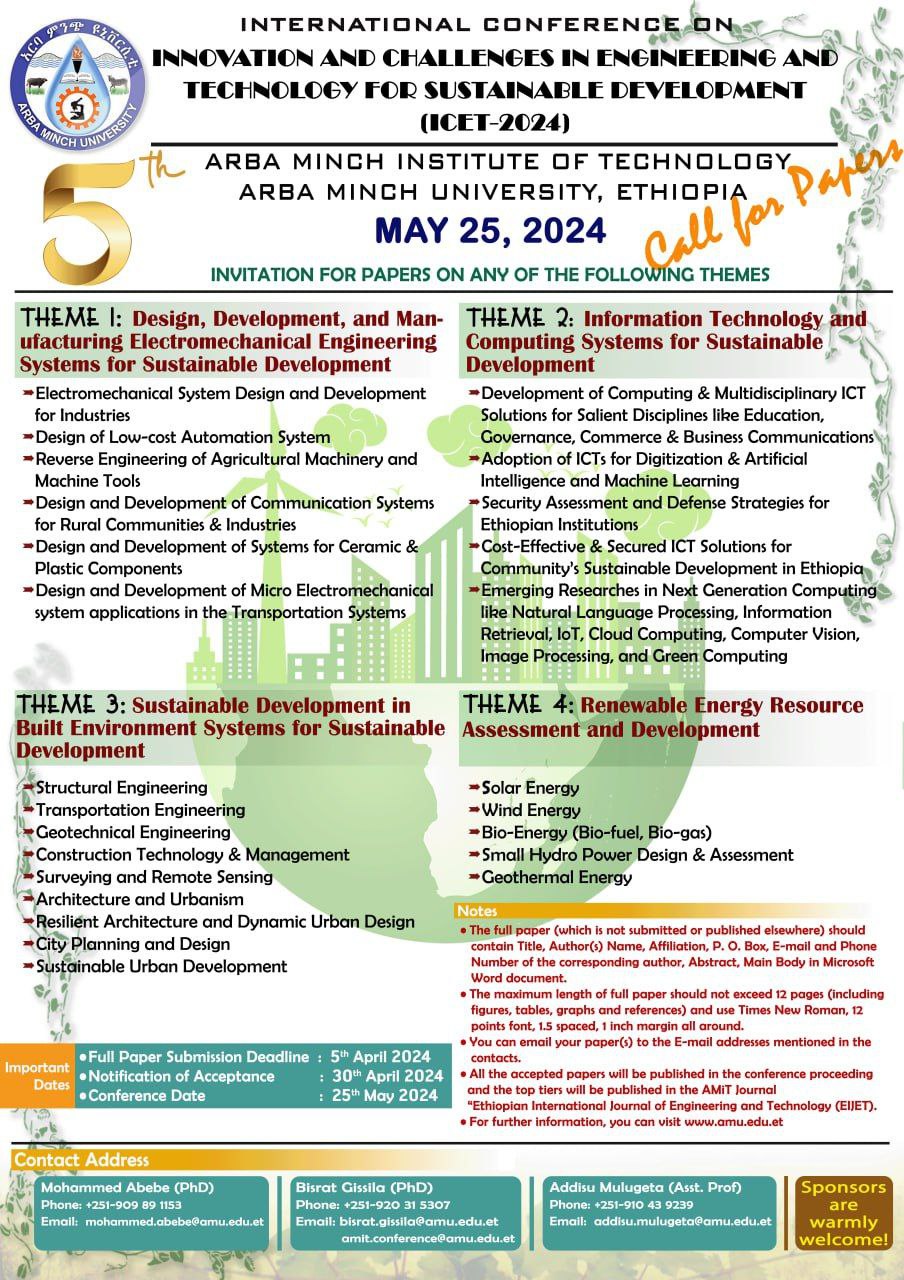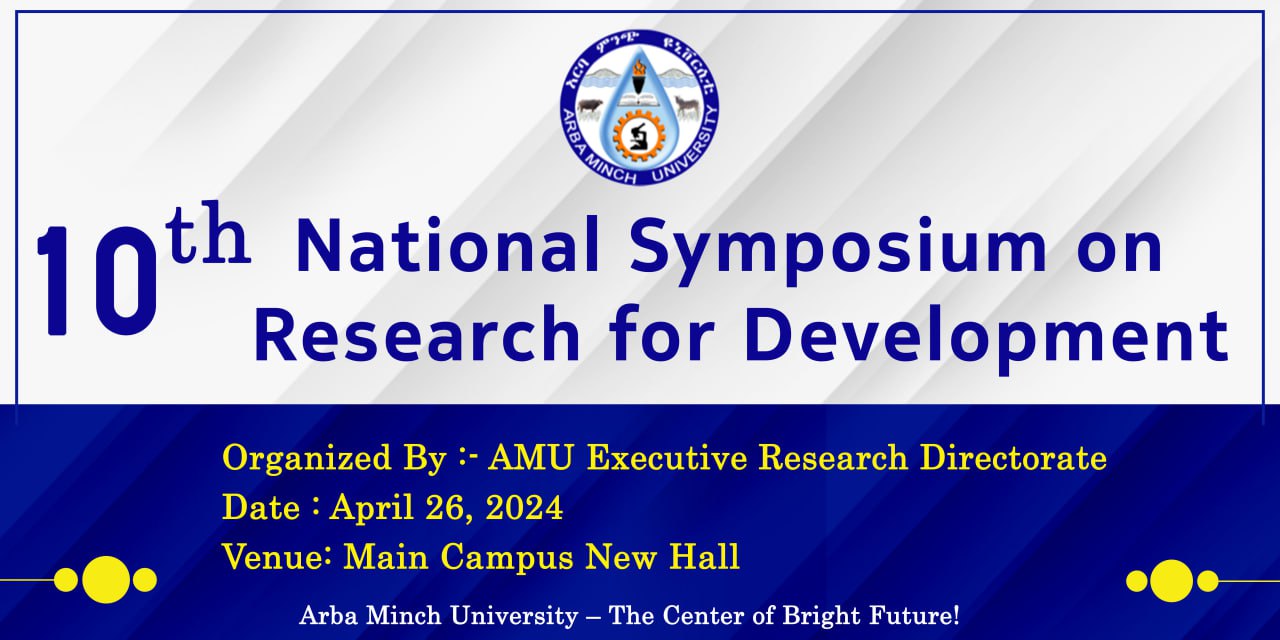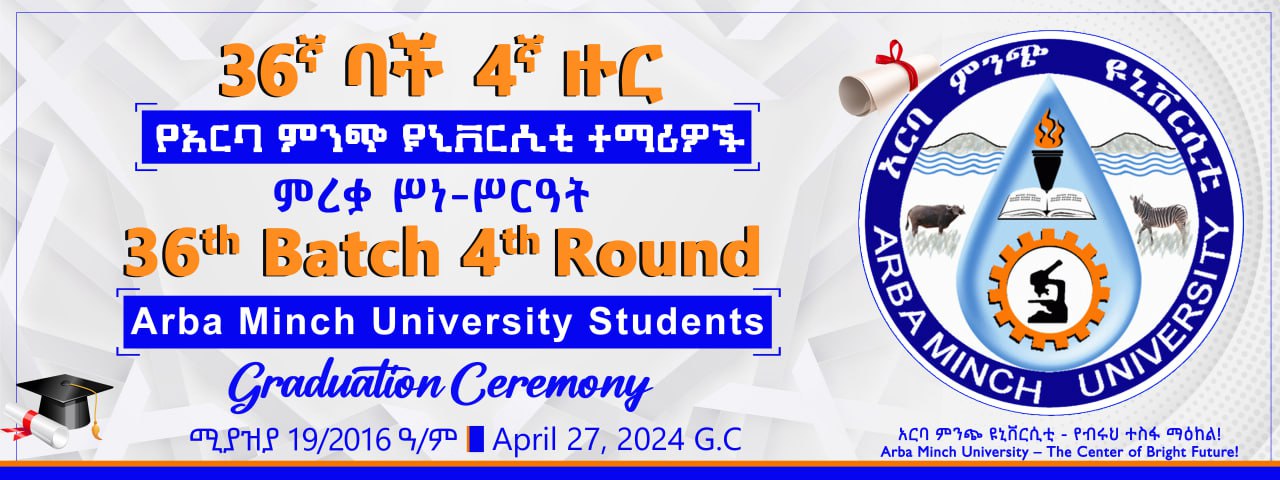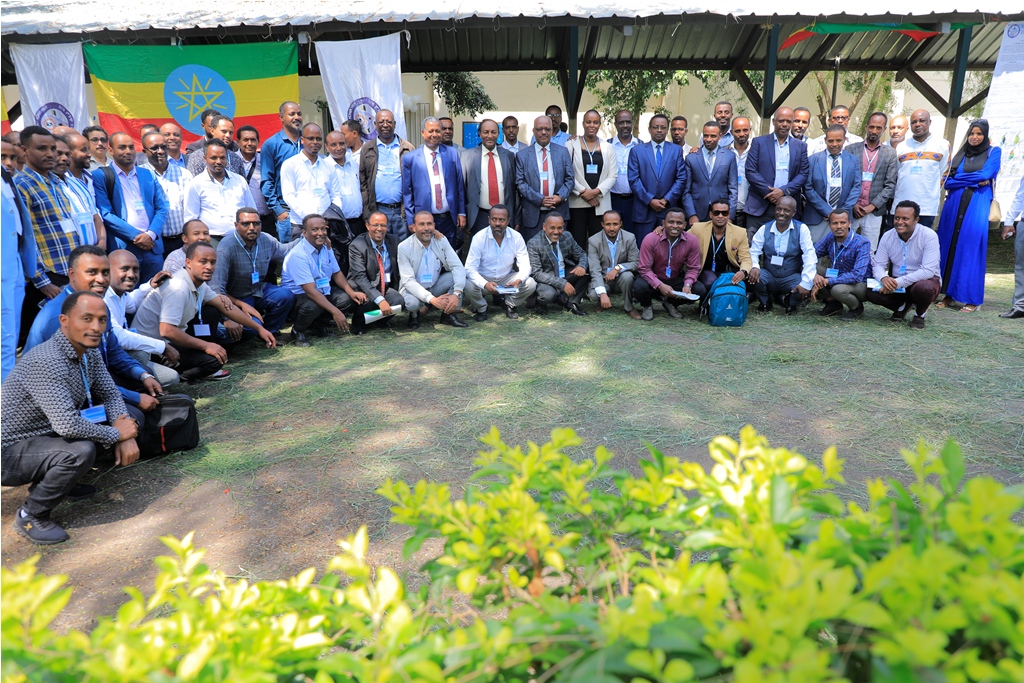AMU’s progenitor, Arba Minch Water Technology Institute, AWTi, has hosted the 21st international symposium on “Sustainable Water Resources Development” from June 9-10, 2023.
Opening the symposium, AMU Academic Affairs Vice President & the delegate for President, Dr. Alemayhu Chufamo, said that in the past three decades, AMU in general and AWTi in particular have produced a prominent number of water engineers who are recently serving the nation in capacity building and playing pivotal role in developing and managing various water supply, irrigation, and hydropower projects. As AMU is working harder to become an autonomous institution in the near future to meet the national expectation, AWTi and AMiT should give emphasis and use their decades-long experience to establish a consultancy unit to play their professional roles for the nation, and contribute to income generation as an autonomous university, he urged. Click here to see the pictures.
Dr. Bogale Gebremariam, AWTi Scientific Director, speaking on the symposium said that the 20 years legacy of sustaining the symposium demonstrates the commitment the university to strengthenregional, national, and global ties for mutual benefit through the exchange of knowledge and practices on issues related to sustainable water resources development. He further adds that 21 oral and four poster presentations will cover thematic areas of hydrology & integrated water resources management, renewable energy, irrigation & drainage, water supply & sanitation, climate change, variability & impacts and emerging challenges. He also noted that AMU will do its best to get the nationally accredited Ethiopian journal of Water Science & Technology, EJWST, to be accredited internationally as well.
H.E. Ambassador Asfaw Dingamo, State Minister of Water Supply and Sanitation Sector of Ethiopia’s Ministry of Water and Energy, in his keynote speech remarked that Ethiopia has 12 water basins, and except for Awash and the Rift Valley Lakes basin, more than 75% of water resources flow across the borders. He further explained that the issue of trans-boundary rivers is allotted as one of the Ministry's areas of priority in order for Ethiopia to sustainably develop its trans-boundary water resources for irrigation, domestic use, industry, fisheries, and tourism. Since water is a cross cutting resource and entry point as it impacts the development of other key sectors of the economy, the country’s water resource has to be tapped and managed in an integrated manner, the state minister underlined.
The second keynote speaker, Prof. Paulin Coulibaly, from McMaster University, Canada, said researchers in the area have to consider the issues of data accuracy, reliability, tools for monitoring and estimating water resources and role of academia in addressing current challenges. To manage water resources in a better way under changing climate, utilizing various updated and contemporary tools and models to manage uncertainties and monitor and estimate water resources will be significantly helpful. Currently, academic and research institutions like AWTi are considered to be the heartbeat of sustainable water resources management; therefore, AMU in general and AWTi in particular should see beyond Ethiopia and initiate an African network of excellence in water research, he recommended.
Dr. Meron Tefri from International Water Management Institute, presenting her finding on “Case for Collaboration between Data Providers and Users to Enhance Stream Flow Data Availability in Ethiopia”, Said, hydrological data monitoring extends back more than half a century; however, in recent years, there has been a drop in the quality and density of measurements due to numerous reasons. She recommended that enhancing ties between data providers and users, demonstrating the added socio-economic value of stream flow data and supporting data providers to use updated tools are mandatory to improve stream flow monitoring in Ethiopia.
Mintamir Ferede, the presenter from AMU, presenting on “Implications of Uncontrolled Water Withdrawal and Climate Change on the Water Supply and Demand Gap in the Lake Tana Sub-Basin”, said that the study focused on land use change, irrigation expansion, and climate change, and their effect on the current and future water availability across the sub-basin. The study affirms that climate change, land cover change, and the uncontrolled spread of irrigated land area are likely to increase the vast demand for irrigation water, which can cause conflicts of interest between users, she noted. To avoid conflicts arising over water demand, she stated that it is necessary to promote sustainable water resources management practices.
Dr. Zeleke Agide,from Addis Ababa University, presenting his finding on “Framework for Ecologically Sustainable Agricultural Water Management (ESAWM)” said, wetlands such as lakes and deltas are principal sources of water for small scale agriculture. However, unsustainable practices have threatened the sustainability of the wetlands which are key sources of livelihoods, food security and other ecosystem functions; therefore, to reduce the pressing challenges in the sector, the research team proposed the ESAWM framework which combines the integrated landscape and market for development approaches in order to create food secured communities that safeguard wetlands, he recommended.
AMU Executive Research Directorate’s Director Dr. Tesfaye H/Mariam gave a lowdown on the research and collaborative works, programs & projects profile of the university whereas Water Resources Research Center Director Dr. Samuel Dagalo moderated the sessions along with other colleagues.
Researchers from universities of Ethiopia and abroad and research institutions participated; AMU top and mid-level officials, research and academic staff, and graduate students were in attendance; Ethiopian Ministry of Water and Energy and Ethiopian Metrological Institute were Platinum level whereas Rift Valley Lake Basin Administration Office, Safeguarding Sahelian Wetlands for Food Security (SaWeL), and Improving Water Security for the Poor (REACH) Programs were Gold-level sponsors of the 21st global Meet event.
Arba Minch University
The Center of Bright Future!
For more Information Follow us on:-
Website - https://www.amu.edu.et/
Telegram - https://t.me/arbaminch_university
Facebook - https://www.facebook.com/ArbaMinchUniversityCCD/
YouTube - https://www.youtube.com/channel/UCOO_nclhMo8M3r74OyPBlVA
Communication Affairs Directorate
